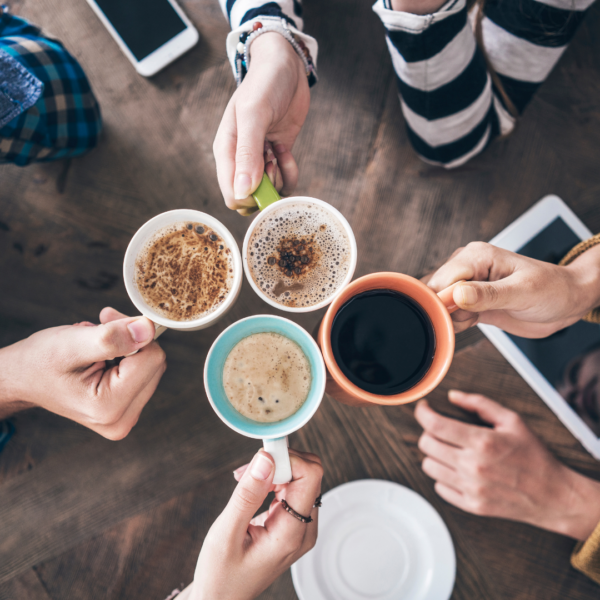Notes from the Garden: Coffee & Connection

October Plant of the Month: Coffea arabica
doTERRA Essential Oil of the Month: Douglas Fir
On the global level of plant consumption and connection, coffee is an international mogul. It’s one of the top ten most traded commodities in the world, and it serves to connect. There are estimates of 125 million people employed by the coffee industry, either in growing, roasting, exporting, or retail. Chances are, the labor of many different hands, from many different lands, have gone into the next cup of coffee you enjoy.
We drink 2.6 billion cups of coffee worldwide every day. The rise of coffeehouse culture has put one on nearly every corner in major American metropolises and beyond, bringing in folks from the community not only to enjoy a hot cup of coffee made their way, but also to socialize, connect, and exchange information. It seems the coffee bean is bringing us all together.
The coffee bean is actually the seed of the coffee plant. It has sweet-smelling flowers and grows in a tropical weather band around the equator, called the “bean belt,” that spans 70 countries! The seed is found in the fruit, or red “coffee cherry.” When it’s picked, and before they’re roasted, the seeds are green and have a vegetable taste. After the cherries are harvested, the seeds are extracted through a pulping and fermentation process, then dried in the sun. This prepares them for roasting, a complex, alchemical drying process where the nuances of each coffee’s flavor profile are coaxed out at temps of 400 degrees.
Here, the seed is transformed into the bean we know and love. You don’t want just anyone roasting your coffee. This process is so crucial that seconds can make the difference between a perfectly roasted batch of coffee and one that’s considered ruined. Flavor palates like fruity, floral, robust, or chocolaty are all enhanced by roasting. You know that transporting scent of freshly ground coffee? Thank the roaster.
Coffee builds community, one cup at a time. You can always find it at Hope Grows, for every meeting, gathering, and support group. As humans, we are hardwired to connect, both with each other and the natural world. This is something never to be taken for granted, especially in any healing process.
One of the greatest lessons that Hope Grows has taught me is the value of human connection, and to never underestimate its power. In fact, one of Hope Grows’ signature essential oils is called “Abundantly Connected,” and for good reason. Connection moves people, while working to support and unify one another. So many connections run deeper than we can imagine, as there is so much the eye can’t see.
As you enjoy your next cup of coffee, ponder this: data scientist Riccardo Sabatini printed out the entire human genome and wheeled it onstage for his 2016 TED talk. All told, it takes up 262,000 densely printed pages. Of those 262,000 pages, only 500 of them, a mere .19%, comprise the number of pages of genetic code that contains what makes us different from one another. The other 261,500 pages, or 99.81%, of our genetic code is shared by all humans on the planet. Sometimes, connecting over a good cup of coffee may just help us find what’s been there all along.
Gives new meaning to the question: wanna get a cup of coffee?
Written by Jessica Giannotta, Hope Grows Horticulturist
